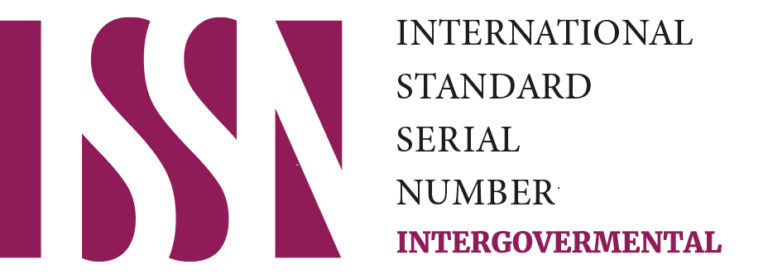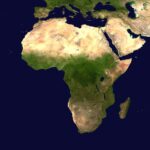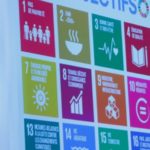Note: to view this article with its images/photos please access at https://euclid.egnyte.com/dl/ZeQt9jNOdc
Authors: Charalee Graydon, Marta Arbab
Charalee Graydon – Assistant Professor, EUCLID (Euclid University) Ph.D., J.D, BCL
Marta Arbab, Ph.D. student, Faculty of Fine Arts, UCM.
1. Name and address of the corresponding authors:
Charalee Graydon
Email: [email protected]
Marta Arbab
Email: [email protected]
Keywords: United Nations, International Treaty, Zero Draft, United Nations Development Program, Pollution, Plastic Pollution, Oceans, Rivers, Environment, life cycle of plastics.
IGOs: United Nations, Environment Program, Intergovernmental Negotiating Committee on Plastic Pollution, United Nations Environmental Assembly (UNEA), Intergovernmental Negotiating Committee (INC), UNESCO
Submitted: June 2, 2024.
URL: https://www.academia.edu/IRPJ
Email: [email protected]
| ABSTRACT
Taking steps to address a well-known environmental problem, the United Nations has encouraged countries to move forward to develop a global treaty to address the matter of plastic pollution. Agreement by countries in 2022 led to discussions between countries and stakeholders involved in addressing the plastic pollution problem. This article will review the trajectory that has been followed and the global treaty to be put in place in 2024. It looks at the question from the context of educating young people to learn about the treaty and how plastic pollution can affect marine life and how steps can be taken to help stop the pollution. This article will provide information that can be used by schools and academic institutions to show how the Plastic Pollution Treaty needs to be more than text and how it can be communicated to people to help guide their actions in their daily lives. The article encourages further research into methods to assess the impact of the global plastic pollution treaty and methods to communicate the “end plastic pollution” treaty message to the public and youth by raising awareness, building empathy, and creating a desire to stop plastic pollution. |
|
Part 1: Introduction
As current news, plastic pollution is not a new topic. We know that plastic is a human mainstay for packaging and use of products. We know that plastic is being discarded in vast quantities, disintegrating slowly, and when not properly dealt with by waste management systems, causing problems on land, sea, and human health.
The good news is that countries and stakeholders around the world have taken steps to address this problem. In 2022, 153 countries agreed to move forward in creating provisions for a treaty to address plastic pollution, including in the marine environment. [1] This article will review the background leading to the development of a global agreement for UN member states and other stakeholders to develop programs outlined in a treaty to put an end to plastic pollution on land and in the sea. It will then move on to review the proposed treaty terms with particular focus on how these terms will be communicated to the parties and Stakeholders and the broader public. The role of education in this communication will be covered focusing on examples of methods that can be used to solidify the message of stopping plastic pollution. Specific examples of how the creative and technological arts can be used will be reviewed. This will cover both general information and information for youth.
The article will also review the importance of establishing methods to research and assess the success of the global treaty. This includes ongoing follow-up of the treaty for taking steps to clean the land and the ocean of plastic pollution. The objective of this work is to explore methods to communicate the message of “end plastic pollution of land and sea” and ways to assess the impact of the global treaty.
Part 2: Creating a Global Plastic Pollution Treaty
In March 2022, countries of the United Nations adopted the resolution to end plastic pollution both on land and in the oceans. The resolution indicated that it would move toward an internationally binding instrument to achieve this result. As part of the resolution, an intergovernmental negotiating committee (INC) was created to commence work in the second half of 2022, with the intention that the work would reach completion by the end of 2024.[2]
Meetings have been held to build the structure and details for the instrument. It has been indicated to be one of the most signification international actions since the Paris Agreement.
Meetings have been taking place in various locations to share the requisite information with all national parties as the program develops. Providing a summary of the main meetings that have taken place and those that are upcoming illustrates that treaty development is complicated and requires cooperation and compromise.[3]
But the goal is common, to seek an end to the destructive impact of plastic pollution.
The first session was held in Uruguay in November and December 2022, followed by a session in Paris, France in May, and June 2023. The third session occurred in Nairobi, Kenya in November 2023, and the fourth in Ottawa, Canada in April 2024. This brings the INC closer to the end of the committee’s preparations, with a meeting scheduled in the Republic of Korea in November 2024. After the ING-5 meeting, there will be a conference of the plenipotentiaries, with Ecuador, Peru, Rwanda, and Senegal as potential hosts in 2025, to finalize the treaty.[4]
The second meeting of the INC had mandated the preparation of a “zero draft” for consideration at the INC-3. It had also been agreed that there would be a one-day meeting before INC 3 to discuss elements not considered during INC-2. The UNEP Director highlighted calls for a broad, inclusive, and transparent agreement leaning on science, and learning from stakeholders. Also, of importance was ensuring there would be support for developing countries. The items of contention were numerous. Some countries sought a bottom-up approach like the Paris Agreement where countries would determine their commitments based on their capacity and best interests. Other countries asked for strong global commitments for countries with common but differentiated responsibilities. These requests set out that legacy plastics and waste as important matters to be addressed.[5]
There was a call for a revised document to be prepared before INC 4, the April 2024 meeting in Ottawa, Canada.[6] The document created, UNEP/PP/INC 4/3 consists of six parts. The first part provides options for the preamble, definitions, principles, and scope. Options in the second part include primary plastic polymers, short-lived and single-use products that are considered problematic and avoidable, micro-, and nano plastics, and chemicals and polymers of concern. This section also contains information about product design, producer responsibility, waste management, and existing plastic pollution.
The third part contains information about capacity building, financing, technical assistance, and technology transfer.
The fourth part deals with national action and implementation plans. It covers compliance, reporting on progress, and periodic assessment and monitoring of implementation plans, and includes options for awareness raising, education, health issues, research, and stakeholder engagement. Options for education and raising awareness are important aspects of the treaty, and this article provides ideas for education for youth and an example of education on plastic pollution in the ocean.
The fifth part addresses the governing and subsidiary bodies of the proposed treaty and its secretariat. The final, sixth part will include annexes to the treaty instrument.
Part 3: Major Aspects of the Treaty
INC 4, held in Ottawa, Canada, was important as Parties moved forward with the global end plastic pollution Instrument. [7] The instrument is a comprehensive approach addressing the full life cycle of plastics from micro-plastics to ideas to provide non-plastic alternatives. This includes the entire life cycle of plastics from design to production and disposal. One UN news report recognized that millions of tons of plastic end up in landfills and find their way to rivers and oceans each year. It was also noted that this results in the potential for plastics to enter the food chain with potential damage to humans, other species, and the environment. The approach being adopted for the plastic pollution treaty illustrates the strength of global environmental multilateralism by addressing climate change, nature loss, the pollution problem, and waste.
The Ottawa meeting followed the Ocean Decade Conference in Barcelona, Spain, in April 2024, a conference that highlighted plastic pollution in the world’s rivers and oceans. This shows the global legally binding treaty to address plastic pollution for the marine environment to be of utmost importance.[8]
The Ottawa session included 170 members, observer organizations, non-governmental organizations, intergovernmental organizations, and UN entities. Matters discussed by the delegates included the production of plastic, product design, emissions and releases, waste management, problematic plastics, financing, and just transition. [9] The importance of developing a legally binding agreement to address plastic pollution across its entire life cycle, from the extraction of fossil fuels to waste disposal, were important aspects of the INC-4 discussions. Also highlighted in Ottawa, was information about how plastic pollution impacts the climate crisis, biodiversity, and human health.
An advanced draft text was produced, but work will continue with inter-sessional work to be done ahead of the fifth session to be held in November in Busan, Republic of Korea. This meeting will require members to accelerate agreements on items required to be addressed in the treaty.[10]
Focus has been placed on creating a treaty that commits to reusing and recycling plastic, developing a circular approach. It also set out ways to help governments and, the private sector to implement the treaty.
The objectives of INC-4 were to advance the text of the global agreement and to agree on the intersessional work required before the INC-5 meeting, While, these objectives were satisfied, it was recognized that more work needs to be done to deliver an international legally binding treaty to end plastic pollution. For this to be achieved, there needs to be ongoing commitment and convergence by delegates. News reports have commented on the impasse between countries that produce plastic and those seeking to create strong terms to cover whole life management of plastic. During INC-4, Inger Anderson, Executive Director of the UN Environmental Program, stated:
We are seeing convergence on eliminating the uses that are problematic and avoidable. We will continue to need plastic for specific uses, such as renewable energy technologies. But there is growing agreement that short-lived and single use can go[11]
The meeting also showed convergence will be required on the terms to produce plastic, how it will be employed during its life, and how plastic pollution waste can be dealt with acceptably and efficiently. The complexity of these issues was shown by discussions that took place on the topics of primary plastic polymer production to disposal and waste management methods.
During the INC negotiations, delegates recognized that plastic pollution is one of the critical issues facing the twenty-first century. It is one of the triple crises faced: biodiversity loss, climate change, and plastic pollution. The INC work provides hope that plastic pollution will soon join biodiversity and climate change in having a global agreement.[12]
A matter which can foster this goal is the decision made by delegates to create an Open-Ended Legal Drafting group for INC-5 to review the text to ensure it meets legal standards. This decision provides security for countries to know that treaty provisions will comply with international law.
Part 4: Awareness and Education
4.1 General
When the end plastic pollution global instrument is in place, its objectives, terms, and goals need to be communicated to people around the world. It has been said that plastic pollution is a problem of the way we have become accustomed to living, and how we act concerning the environment. To address this situation, guidance from education and governmental programs can be of assistance to people in understanding that they are part of the ecosystem. It can help them change their mindset to recognize the need to act in a manner that respects the environment. Research has been conducted and books and articles written showing the need for awareness that this is a problem to be addressed by humans, and that education is crucial in solving the problem. [13]
From the United Nations Environmental Program to the programs of countries, regions, cities, and local authorities, the plastic pollution message can be brought to the public. All voices can alert people to the damage that is being caused to the environment, including marine life, life on land, and humans. As the global treaty recognizes, people need to move forward quickly to address plastic pollution.
While effective remediation technologies are being developed and put in place to deal with plastic pollution, it has been shown that environmental education is one of the most effective and low-cost methods to deal with plastic pollution.
A recent initiative focuses on capturing and dealing with the plastic both to stop it from reaching the oceans and, when in the ocean to find ways to capture and remove it. Inventor Bryan Slat has introduced a program, Ocean Cleanup, which has the potential to help clean up the oceans within a period that can be beneficial to marine life, the environment, and human health. [14]
Studies indicate that increased environmental awareness is effective in decreasing mismanaged plastic waste and mitigating plastic pollution. Moving from a business-as-usual scenario to one of environmental awareness is one way to address the plastic pollution problem. Environmental nature-based education at primary and secondary schools is the first step toward addressing the planet’s environmental problems, including plastic pollution.
4.2 Programs for Youth
One program relevant to plastic pollution is that of Plastic Free Schools. This seeks to reduce plastic usage in schools, colleges, and universities by changing the use of plastic in the daily activities of the students. There will be no more plastic straws, plastic bags, bottles, or plastic study material and delivery packaging. To augment the plastic prohibition message, programs, and campaigns can be used to inspire young people to be aware of their plastic waste stream, and acknowledgment made of responsible environmental behavior.
Programs are being developed for teachers to build environmental and plastic pollution programs into their teaching activities. [15] This includes providing recognition and awards for cleaning up plastic waste. An Internet search of activities for children to raise awareness and take steps to mitigate plastic pollution shows a host of organizations from the United Nations Environmental Protection to public and private organizations that have launched programs and activities in the area. [16]
Another program is one that uses augmented reality. It consists of an interactive game that allows youth to understand better the reality of the impact of plastic pollution on marine life.
Zero Ocean Pollution AR Filter/Game
Summary: This innovative project leverages Augmented Reality (AR) technology to create a compelling filter game aimed at raising awareness about the critical issue of ocean pollution. With a focus on the impact of plastic waste originating from urban areas, we integrate educational elements with a playful experience. In collaboration with Generalitat Catalunya, the initiative seeks to amplify the message through golden plaques strategically placed on the ground, bearing the Catalonian phrase:
“El Mar Comença Aquí, No Hi Llencis Res!” (“The Sea Starts Here, Don’t Throw Anything!”)
Target audience: The project is targeting a young audience, especially kids. The game unfolds on social media platforms, allowing children to interact with marine creatures in a virtual environment. Overview of Ocean Pollution and Urban Impact: Ocean pollution, driven by plastic waste, poses a severe threat to marine ecosystems. Urban areas, including cities in Catalonia, contribute significantly to this problem through improper waste disposal. The consequences directly affect sea animals, as they often ingest plastic, leading to illnesses and threatening the delicate balance of marine life.
Objectives of the AR Filter Game:
Education: The AR filter game serves as an educational tool, imparting knowledge about the sources and consequences of plastic pollution in oceans.
Engagement: By incorporating gamification elements, the project aims to capture the audience’s attention and encourage active participation in learning about environmental issues.
Empathy Building: Through virtual experiences within the game, users gain insights into the challenges faced by sea animals and ecosystems due to plastic pollution, fostering a sense of empathy and responsibility.
Behavioral Change: The ultimate goal is to motivate users to adopt sustainable practices, such as reducing plastic usage and promoting proper waste disposal, to mitigate the impact of ocean pollution.
Key Features of the AR Filter Game: Interactive Exploration – Kids, using their devices, can discover virtual marine creatures emerging from designated areas on the street adorned with golden plaques. The plaques bear the Catalonian message: “El Mar Comença Aquí, No Hi Llencis Res!” Also, kids can virtually explore the interior of the creatures’ stomachs to observe the impact of plastic waste. If the creature is unwell due to ingested plastic, the game prompts the players to act, which involves cleaning up the area from plastic waste in the real environment.
1.1. Conclusion
Through interactive gameplay and real-world implications, we aim to empower the younger generation to actively participate in preserving marine life and reducing plastic pollution. The integration of Generalitat Catalunya’s golden plaques reinforces the message that the sea’s well-being starts right at the streets where we live.[17]
Part 5: Future Research
Once in place, it is important to research how the treaty instrument is achieving its objectives. This invites academics to create studies to show how world countries, their regions, cities, and local areas apply the treaty. From the perspective of awareness and building end plastic pollution concepts into the educational system, it will be useful for academics to look at programs developed for schools and how these programs engage students to expand their knowledge, empathy, and devotion to the cause of ending plastic pollution on land and in the seas. Studies on how programs like the one illustrated in this article can be integrated into schools and communities will be valuable in determining the efficacy of ending plastic pollution.
Part 6: Conclusion
In 2025, countries are promised that the End Plastic Pollution Global Treaty instrument will be ready to tackle the plastic pollution environmental problem that has plagued the 20th and 21st centuries. The background of developing this instrument covered in this article shows the strength of multilateral agreements for addressing pressing environmental problems. World parties have come together to develop terms for the end of plastic pollution instrument. It is designed to follow the life cycle of plastic from development to disposal both on land and in the oceans.
In addition to reviewing methods to reduce the need for plastics, and developing ways to collect plastics, this article has highlighted the importance of education in building a world where plastic use will be minimized and, when used, will be used responsibly.
Communication of the new treaty instrument is paramount for its success as is education of people of nature-based environmental and sustainable practices. Examples have been provided to show methods by which young people can learn about the importance of adopting an approach to living on the planet without being dependent on plastic. Also important is to follow how the treaty is implemented by countries, and by the public, to ensure it is achieving its objectives and creating a safer planet for all inhabitants.
Bibliography and References
‘A Global Treaty to End Plastic Pollution Is in Sight | United Nations Development Programme.’ Accessed 28 January 2024. https://www.undp.org/blog/global-treaty-end-plastic-pollution-sight.
‘A Grand Plan to Clean the Great Pacific Garbage Patch | The New Yorker.’ Accessed 4 February 2024. https://www.newyorker.com/magazine/2019/02/04/a-grand-plan-to-clean-the-great-pacific-garbage-patch.
‘About CDP.’ Accessed 3 February 2024. https://www.cdp.net/en/info/about-us.
‘Ad Hoc Open-Ended Working Group OEWG to Prepare for the Intergovernmental Negotiating Committee – Google Search.’ Accessed 23 January 2024. https://www.google.com/search?q=Ad+hoc+open+ended+working+group+OEWG+to+prepare+for+the+intergovernmental+negotiating+committee&oq=Ad+hoc+open+ended+working+group+OEWG+to+prepare+for+the+intergovernmental+negotiating+committee&gs_lcrp=EgZjaHJvbWUyBggAEEUYOdIBCjc5NjIyajBqMTWoAgCwAgA&sourceid=chrome&ie=UTF-8.
‘Addressing the Plastic Crisis from Geneva | Plastics and the Environment Series.’ Accessed 2 February 2024. https://www.genevaenvironmentnetwork.org/resources/updates/addressing-the-plastic-crisis-from-geneva/.
BBC News. ‘Plastic Crisis Needs Binding Treaty, Report Says.’ 18 January 2022, sec. Science & Environment. https://www.bbc.com/news/science-environment-60026748.
BBC News. ‘Plastic Pollution: Green Light for “historic” treaty.’ 2 March 2022, sec. Science & Environment. https://www.bbc.com/news/science-environment-60590515.
Bennett, Paige. ‘EU Drafts “Polluter Pays” Rules Requiring Companies to Pay for Microplastics Cleanup.’ EcoWatch, 30 January 2024. https://www.ecowatch.com/microplastics-cleanup-rules-europe-companies-responsibility.html.
Center for Biological Diversity. ‘Global Plastics Treaty Chair Releases “Zero Draft” Ahead of Third Meeting.’ Accessed 23 January 2024. https://biologicaldiversity.org/w/news/press-releases/global-plastics-treaty-chair-releases-zero-draft-ahead-of-third-meeting-2023-09-04/.
Environment, U. N. ‘Plastics in Agriculture – an Environmental Challenge.’ UNEP – UN Environment Programme, 30 July 2022. http://www.unep.org/resources/emerging-issues/plastics-agriculture-environmental-challenge.
erika. ‘Mumbai Calling: The Ocean Cleanup and Bharat Clean Rivers Foundation Join Forces in India • Updates • The Ocean Cleanup.’ The Ocean Cleanup, 29 January 2024. https://theoceancleanup.com/updates/mumbai-calling-the-ocean-cleanup-and-bharat-clean-rivers-foundation-join-forces-in-india/.
‘Free Environmental Science Lesson Plans.’ Accessed 4 February 2024. https://thinkearth.org/curriculum?gad_source=1&gclid=CjwKCAiAiP2tBhBXEiwACslfnqfgzALqNzpUoqB1HiQ9wEltWAznwpvduaKdZ0fnq2LBwbbIwuxP3BoCat0QAvD_BwE.
‘Global Plastic Pollution Treaty.’ In Wikipedia, 14 January 2024. https://en.wikipedia.org/w/index.php?title=Global_plastic_pollution_treaty&oldid=1195689402.
‘Home – Kids Against Plastic.’ Accessed 4 February 2024. https://www.kidsagainstplastic.co.uk/.
‘Hopes Rising for Historic Treaty to Curb Plastic Pollution | | UN News,’ 17 November 2023. https://news.un.org/en/interview/2023/11/1143727.
Https references:
https://www.unep.org/inc-plastic-pollution/media#PressRelease29Apr
‘Https://Sdg.Iisd.Org/News/Ahead-of-Inc-4-Unep-Publishes-Revised-Draft-Text-of-Plastic-Treaty/,’ n.d.
‘Https://Sdg.Iisd.Org/News/Inc-Chair-to-Prepare-Zero-Draft-of-Plastics-Treaty-in-Advance-of-Inc-3/,’ n.d.
‘Https://Theoceancleanup.Com/Boyan-Slat/,’ n.d.
‘Https://Wedocs.Unep.Org/Bitstream/Handle/20.500.11822/39640/K2200733%20-%20UNEP-EA-5-RES-14%20-%20ADVANCE.Pdf,’ n.d.
‘Https://Www.Reuters.Com/Business/Environment/Biggest-Green-Deal-since-Paris-Un-Agrees-Plastic-Treaty-Roadmap-2022-03-02/,’ n.d.
‘Https://Www.Unep.Org/Events/Unep-Event/Inc/Oewg,’ n.d.
‘Https://Www.Unep.Org/Inc-Plastic-Pollution/Oewg,’ n.d.
‘Https://Www.Unep.Org/Interactives/Beat-Plastic-Pollution/?lang=EN,’ n.d.
‘Https://Www.Yahoo.Com/Tech/Mit-Researchers-Discovered-Remarkable-Way-103003954.Html?guccounter=1&guce_referrer=YW5kcm9pZC1hcHA6Ly9jb20uZ29vZ2xlLmFuZHJvaWQuZ29vZ2xlcXVpY2tzZWFyY2hib3gv&guce_referrer_sig=AQAAAGTI5wJ3xEJ6BgMxieBFqB-YuLe8PENprrClBcobzTBzYetXJ0dGMN2-vtp3CkT2TLadxYM3LcXoK9yvqKRpY5V-H8gCmtLKfPyq3B9mHed-sE-m2marem3Hjpwq6HfU3FwP6YtbN5s9Kgyzm0rXPLn-xqk18Pf5b29NHnnR2-Kl,’ n.d.
Hub, IISD’s SDG Knowledge. ‘Ahead of INC-4, UNEP Publishes Revised Draft Text of Plastic Treaty | News | SDG Knowledge Hub | IISD’. Accessed 29 January 2024. http://sdg.iisd.org/news/ahead-of-inc-4-unep-publishes-revised-draft-text-of-plastic-treaty/.
———. ‘Event: Plastic Pollution INC-1 | SDG Knowledge Hub | IISD’. Accessed 26 January 2024. http://sdg.iisd.org/events/plastic-pollution-inc-1/.
———. ‘Guest Article: Microplastics, Fresh Water Emissions Critical for Plastics INC to Consider | SDG Knowledge Hub | IISD.’ Accessed 23 January 2024. http://sdg.iisd.org/commentary/guest-articles/microplastics-fresh-water-emissions-critical-for-plastics-inc-to-consider/.
———. ‘INC Secretariat Paper Outlines Options for Elements to Include in Plastics Treaty | News | SDG Knowledge Hub | IISD.’ Accessed 26 January 2024. http://sdg.iisd.org/news/unep-paper-outlines-options-for-elements-to-include-in-plastics-treaty/.
———. ‘Plastic Treaty Negotiators Request Revised Zero Draft for INC-4 | News | SDG Knowledge Hub | IISD’. Accessed 29 January 2024. http://sdg.iisd.org/news/plastic-treaty-negotiators-request-revised-zero-draft-for-inc-4/.
———. ‘Policy Brief: Towards a Lifecycle, Circular Approach to Combating Plastics Pollution | SDG Knowledge Hub | IISD.’ Accessed 26 January 2024. http://sdg.iisd.org/commentary/policy-briefs/towards-a-lifecycle-circular-approach-to-combating-plastics-pollution/.
IISD Earth Negotiations Bulletin. ‘1st International Environment Forum for Basin Organizations’. Accessed 23 January 2024. http://enb.iisd.org/events/1st-international-environment-forum-basin-organizations.
Liu, Jianli, Zhubing Hu, Fangfang Du, Wei Tang, Siting Zheng, Shanzhou Lu, Lihui An, and Jiannan Ding. ‘Environment Education: A First Step in Solving Plastic Pollution.’ Frontiers in Environmental Science 11 (2023). https://www.frontiersin.org/articles/10.3389/fenvs.2023.1130463.
‘Liu Jianli, Hu Zhubing, Du Fangfang, Tang Wei, Zheng Siting, Lu Shanzhou, An Lihui, Ding Jiannan TITLE=Environment Education: A First Step in Solving Plastic Pollution JOURNAL=Frontiers in Environmental Science VOLUME=11 YEAR=2023 URL=https://Www.Frontiersin.Org/Articles/10.3389/Fenvs.2023.1130463 DOI=10.3389/Fenvs.2023.1130463 ISSN=2296-665X’, n.d.
‘Marine Litter and Plastic Pollution Legal Toolkit | UNEP Law and Environment Assistance Platform.’ Accessed 23 January 2024. https://leap.unep.org/en/knowledge/toolkits/plastic.
Meta Spark https://spark.meta.com/
MIT Researchers Have Discovered a Remarkable New Way to Clean up Air Pollution — by Starting with Our Oceans – [email protected] – Gmail.’ Accessed 23 January 2024. https://mail.google.com/mail/u/0/?tab=rm&ogbl#all/FFNDWNFPVsBvMFCcbXBMshQxzKQNZBrW?compose=DmwnWrRttWVkGMjNqTBfNhQlgQdFtwKzdDMZmQlqZRlgwfVsslkhKzLFbgdhcdbLBXfpFKRGQSLG.
Nations, United. ‘Nations Agree to End Plastic Pollution.’ United Nations. United Nations. Accessed 22 January 2024. https://www.un.org/en/climatechange/nations-agree-end-plastic-pollution.
Negotiations on a Global Plastics Treaty Get Underway | News | SDG Knowledge Hub | IISD.’ Accessed 23 January 2024. https://sdg.iisd.org/news/negotiations-on-a-global-plastics-treaty-get-underway/.
NPEC Redirect.’ Accessed 3 February 2024. https://www.newplasticseconomy.org/.
‘Plastics.’ Accessed 3 February 2024. https://www.cdp.net/en/plastics?cid=19487799348&adgpid=148824307630&itemid=&targid=kwd-296261257919&mt=b&loc=9055317&ntwk=g&dev=c&dmod=&adp=&gclid=Cj0KCQiA5fetBhC9ARIsAP1UMgHY32I3qgJV96_qbdVogG4YBLCIxugKnwC6_E7pF2MmsMk9FQeCszUaAiUxEALw_wcB.
‘Plastics.’ Accessed 3 February 2024. https://www.cdp.net/en/plastics?cid=19487799348&adgpid=148824307630&itemid=&targid=kwd-296261257919&mt=b&loc=9055317&ntwk=g&dev=c&dmod=&adp=&gclid=Cj0KCQiA5fetBhC9ARIsAP1UMgHY32I3qgJV96_qbdVogG4YBLCIxugKnwC6_E7pF2MmsMk9FQeCszUaAiUxEALw_wcB.
‘Plastics Pact Network.’ Accessed 3 February 2024. https://www.ellenmacarthurfoundation.org/the-plastics-pact-network.
Programme, United Nations Environment. ‘Proposed Approach to the Work of the Intergovernmental Negotiating Committee (INC) Developing an International Instrument on Plastic Pollution, Including in the Marine Environment,’ May 2022. https://wedocs.unep.org/xmlui/handle/20.500.11822/40080.
Sea Hugger. ‘At Home Learning.’ Accessed 3 February 2024. https://www.seahugger.org/at-home-learning.
Seema. ‘Trash Hero Kids’ Programme – Trash Hero World,’ 30 October 2018. https://trashhero.org/trash-hero-kids-program/.
Slat, Boyan. ‘Opinion | Reducing Plastic Pollution in Our Oceans Is Simpler Than You Think.’ The New York Times, 25 May 2023, sec. Opinion. https://www.nytimes.com/2023/05/25/opinion/river-plastic-ocean.html.
‘Sustainable Oceans Initiative Looks to CBD, BBNJ Talks to Plan Ahead | News | SDG Knowledge Hub | IISD.’ Accessed 23 January 2024. https://sdg.iisd.org/news/sustainable-oceans-initiative-looks-to-cbd-bbnj-talks-to-plan-ahead/.
Tabuchi, Hiroko. ‘The World Is Awash in Plastic. Nations Plan a Treaty to Fix That.’ The New York Times, 2 March 2022, sec. Climate. https://www.nytimes.com/2022/03/02/climate/global-plastics-recycling-treaty.html.
The Fate of Our Oceans with Boyan Slat and Jared Leto, 2019. https://www.youtube.com/watch?v=hHkcjZIj6DU.
‘The Global Commitment 2022’. Accessed 3 February 2024. https://www.ellenmacarthurfoundation.org/global-commitment-2022/overview.
The Ocean Cleanup. ‘2023 Accomplished | How We Did • Podcasts • The Ocean Cleanup’, 26 December 2023. https://theoceancleanup.com/podcasts/2023-accomplished-how-we-did/.
The Ocean Cleanup. ‘Boyan Slat • Founder and CEO of The Ocean Cleanup,’ 8 December 2014. https://theoceancleanup.com/boyan-slat/.
The Ocean Cleanup. ‘Catching Up Podcast • The Ocean Cleanup,’ 30 January 2024. https://theoceancleanup.com/podcasts/.
The Ocean Cleanup. ‘Conversation Starter | What Does Your River Mean to You? • Podcasts • The Ocean Cleanup,’ 30 January 2024. https://theoceancleanup.com/podcasts/conversation-starter-what-does-your-river-mean-to-you/.
UN Environment. ‘Historic Day in the Campaign to Beat Plastic Pollution: Nations Commit to Develop a Legally Binding Agreement,’ 3 February 2022. http://www.unep.org/news-and-stories/press-release/historic-day-campaign-beat-plastic-pollution-nations-commit-develop.
UN Environment. ‘Historic Day in the Campaign to Beat Plastic Pollution: Nations Commit to Develop a Legally Binding Agreement,’ 3 February 2022. http://www.unep.org/news-and-stories/press-release/historic-day-campaign-beat-plastic-pollution-nations-commit-develop.
UN Environment. ‘INC Chair to Prepare Zero Draft of International Agreement on Plastic Pollution as Paris Negotiations End,’ 6 March 2023. http://www.unep.org/news-and-stories/press-release/inc-chair-prepare-zero-draft-international-agreement-plastic.
UNEP. ‘A Roadmap towards a Circular Plastics Economy,’ 21 September 2022. http://www.unep.org/news-and-stories/speech/roadmap-towards-circular-plastics-economy.
UNEP. ‘Baby Steps: How to Reduce Plastic Nappy Waste,’ 5 November 2023. http://www.unep.org/news-and-stories/story/baby-steps-how-reduce-plastic-nappy-waste.
UNEP. ‘Five Fun Activities to Teach Your Children about Plastic Pollution,’ 23 March 2020. http://www.unep.org/news-and-stories/story/five-fun-activities-teach-your-children-about-plastic-pollution.
UNEP. ‘Five Fun Activities to Teach Your Children about Plastic Pollution,’ 23 March 2020. http://www.unep.org/news-and-stories/story/five-fun-activities-teach-your-children-about-plastic-pollution.
UNEP. ‘Plastic Leaching into Farmer’s Fields at Alarming Rate: New Report,’ 17 October 2022. http://www.unep.org/news-and-stories/story/plastic-leaching-farmers-fields-alarming-rate-new-report.
UNEP. ‘What to Expect as Negotiations to End Plastic Pollution Kick Off,’ 28 November 2022. http://www.unep.org/news-and-stories/story/what-expect-negotiations-end-plastic-pollution-kick.
UNEP. ‘What You Need to Know about the Plastic Pollution Resolution,’ 3 February 2022. http://www.unep.org/news-and-stories/story/what-you-need-know-about-plastic-pollution-resolution.
UNEP – UN Environment Programme. ‘Fourth Session.’ Accessed 2 February 2024. http://www.unep.org/inc-plastic-pollution/session-4.
UNEP – UN Environment Programme. ‘INC : OEWG.’ Accessed 29 January 2024. http://www.unep.org/inc-plastic-pollution/oewg.
UNEP – UN Environment Programme. ‘Intergovernmental Negotiating Committee on Plastic Pollution.’ Accessed 23 January 2024. http://www.unep.org/inc-plastic-pollution.
UNEP – UN Environment Programme. ‘Second Session.’ Accessed 1 February 2024. http://www.unep.org/inc-plastic-pollution/session-2.
UNEP – UN Environment Programme. ‘Third Session.’ Accessed 23 January 2024. http://www.unep.org/inc-plastic-pollution/session-3.
Unilever. ‘Voluntary Initiatives to End Plastic Pollution Aren’t Enough,’ 16 January 2024. https://www.unilever.com/news/news-search/2024/why-we-need-a-global-treaty-to-end-plastic-pollution/.
Unilever. ‘“Zero Draft” Negotiations for UN Plastics Treaty | Unilever,’ 8 November 2023. https://www.unilever.com/news/news-search/2023/zero-draft-negotiations-un-plastics-treaty-process-enters-pivotal-stage/.
‘“URL=https://Www.Frontiersin.Org/Articles/10.3389/Fenvs.2023.1130463 DOI=10.3389/Fenvs.2023.1130463 ISSN=2296-665X”.’, n.d.
‘Visual Feature | Beat Plastic Pollution.’ Accessed 3 February 2024. http://unep.org/interactive/beat-plastic-pollution/.
‘Visual Feature | Pollution to Solution: Accessing Marine Litter and Plastic Pollution.’ Accessed 23 January 2024. https://www.unep.org/interactive/pollution-to-solution/.
Yahoo News. ‘“Biggest Green Deal since Paris”: UN to Approve Plastic Treaty Roadmap,’ 2 March 2022. https://news.yahoo.com/biggest-green-deal-since-paris-103920727.html.
[1] United Nations Environment Assembly. 2022. 5/14. End Plastic Pollution: Towards an International Legally Binding Instrument – Resolution adopted by the United Nations Environment Assembly on 2 March 2022 [UNEP/EA.5/Res.14].
[2] “Biggest Green Deal since Paris’: UN to Approve Plastic Treaty Roadmap,” Yahoo Finance, March 2, 2022, 1, https://finance.yahoo.com/news/biggest-green-deal-since-paris-103920727.html.
[3] Intergovernmental Negotiating Committee on Plastic Pollution (INC) UNEP.’ Https://www.Unep.Org/Inc-Plastic-Pollution,” n.d.
[4] UN Environment Program, Negotiations on a Global Plastics Treaty Get Underway | News | SDG Knowledge Hub | IISD, December 2022.
[5] UN Environmental Program, News, Stories & Speeches | UNEP 28 Apr. 2024, https://www.unep.org/news-and-stories.
[6]United Nations Environment Program, SDG Knowledge Hub, ‘Ahead of INC-4, UNEP Publishes Revised Draft Text of Plastic Treaty | News | SDG Knowledge Hub | IISD, January 24, 2024.
[7]United Nations Environment Program, http://www.unep.org/inc-plastic-pollution/session-4, April 29, 2024.
[8] Ocean Decade Conference, April,2024,
https://oceandecade.org/news/ocean-protection-in-barcelona-audrey-azoulay-welcomes-the-significant-efforts-made-by-the-international-community/.
[9] International Negotiating Committee on Plastic Pollution (INC), Fourth Session, https://www.unep.org/inc-plastic-pollution/media#PressRelease29Apr.
[10] International Negotiating Committee on Plastic Pollution (INC), https://webtv.un.org/en/search/categories/meetings- events/conferences/intergovernmental-negotiating-committee-plastic-pollution-inc/inc-4
[11]Ibid.
[12] Sandra Laville, Environmental Correspondent, The Guardian, “Https://Www.Theguardian.Com/Environment/2024/Apr/23/World-Must-Come-Together-to-Tackle-Plastic-Pollution-Says-Chair-of-Un-Talks.”
[13] Liu J, Hu Z, et.al. (2023), Environment education: A first step in solving plastic pollution. Front. Environ. Sci. 11:1130463. Doi: 10.3389/fenvs.2023, l.
[14] Boyen Stat, Founder and CEO of Ocean Clean UP, https://theoceancleanup.com/boyan-slat/n.d.
[15] Think Earth Environmental Foundation, Curriculum, https://thinkearth.org/curriculum?gad_source=1&gclid=CjwKCAiAiP2tBhBXEiwACslfnqfgzALqNzpUoqB1HiQ9wEltWAznwpvduaKdZ0fnq2LBwbbIwuxP3BoCat0QAvD_BwE, n.d.
[16] United Nations Environment Program, Five fund Activities to Teach your Children about Plastic Pollution, 23 Mar, 2020, http://www.unep.org/news-and-stories/story/five-fun-activities-teach-your-children-about-plastic-pollution.
[17] “Software Meta Spark Studio Figma,” n.d.






